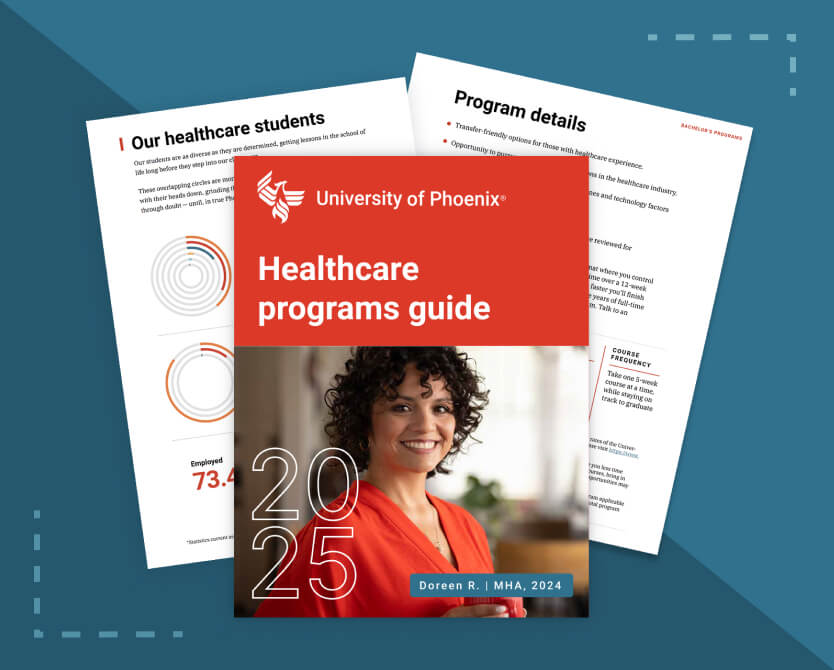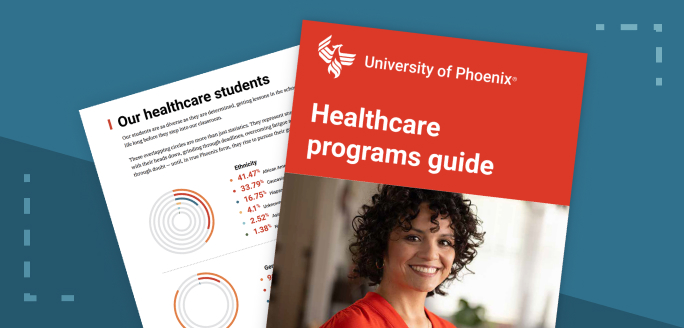Articles > Healthcare > How to become a health services manager
How to become a health services manager

Written by Michael Feder

Reviewed by Mark Jóhannsson, DHSc, MPH, Dean, College of Health Professions

Health services managers are a guiding force in hospitals, clinics and other healthcare settings. They use their wealth of technical skills and management experience to oversee staff, budgets and organizational compliance. Let’s take a closer look at this career path, including where these managers work, skills and salaries.
What is a health services manager?
A health services manager, also known as a health manager, is an administrator who coordinates important aspects of a healthcare environment. These professionals might address such tasks as planning and implementing operations, managing facilities and overseeing employees.
During a single week, health managers might oversee nurse training, purchase equipment, plan budgets and create staff schedules. Broken down, their duties include the following:
- Operational management: The primary part of this job is to run a tight ship and ensure each department functions smoothly. They also focus on efficiently managing resources and implementing organizational goals.
- Financial management: Staying on (or below) budget is a big part of this job and includes monitoring expenses and revenue to ensure stable financials. They oversee budgets, financial planning and billing to accomplish this goal.
- Human resources: Ensuring the hospital or clinic is staffed adequately means working closely with HR. They’re usually in charge of staffing, recruiting, performance evaluations and training.
- Strategic planning: Long-term strategies are essential to improve patient outcomes and run a hospital efficiently. Health managers typically know they must stay ahead in a fast-changing environment that can include emerging diseases and new policies.
- Policy development: They ensure their facilities comply with safety standards and quality assurance. This generally means that they need to stay abreast of federal regulations and figure out how to create policies to keep their organizations in compliance.
Remember, each hospital’s or health system’s needs may dictate different responsibilities at different times.
What is health services management?
Health services management is a multidisciplinary field combining aspects of business, health policy and science with the goal of improving the quality and efficiency of healthcare services. It is integral to healthcare governance and involves leading and managing healthcare systems.
Professionals in this field work in various settings, such as public health systems, nursing homes, hospitals and entire hospital networks. Health services management, in other words, might look different depending on the setting. Consider the following environments:
- Hospitals: Health services managers might oversee specific departments or the entire hospital. They’re responsible for compliance with laws and regulations, improvements in efficiency and quality in patient care, and budget-related matters.
- Nursing homes: In this setting, they sometimes hold the title of administrator and are typically responsible for staffing, admissions, budgeting and resident care.
- Clinics: Smaller clinics might rely on this role to oversee day-to-day operations, including hiring and training staff and managing budgets.
- Public health departments: Managers who work in public health typically coordinate public health programs and policies. They also tackle staff management duties.
Health services management and healthcare administration have few differences. While health managers might focus on the broader business and strategic aspects of a healthcare organization, healthcare administrators tend to concentrate on the daily operations and personnel management within a facility. However, in many respects these two roles are similar and the titles are often used interchangeably.
Health services management can be an excellent career for several reasons. First, there’s a growing demand for these professionals. Because these professionals can work in various settings, such as hospitals, nursing homes and outpatient care centers, there’s plenty of potential to find a company that fits needs. Finally, play a critical role in the quality of healthcare for patients, so it’s a fulfilling job in that make a positive impact on people’s lives.
How to become a health services manager
People who pursue a health services management career might take the following steps as part of their career path:
1. Earn a bachelor’s degree
To qualify for a position as a health services manager, you will need a bachelor’s degree. Students often pursue a Bachelor of Science in Health Management or a related healthcare degree.
Look for degree programs that teach skills needed in healthcare management. For example, prioritize options that include courses in management, budgeting, regulations and ethics. Students also need to learn how to manage human resources tasks, protect electronic health records (EHR) and analyze internal and external data.
2. Gain practical experience
Some employers prefer candidates with at least a few years of hands-on experience in an administrative or clinical setting. Employers appreciate this experience because it often means the job candidate is already familiar with the workplace and the problems they might face in their role.
There are several ways to gain practical experience in a healthcare environment. Some aspiring health services professionals get their start with an internship, one that bridges the gap between the classroom and the real world. Others find employment in one of several entry-level healthcare careers, where they can learn skills in patient care, business administration, clerical tasks and health IT.
Volunteer at a hospital, clinic or healthcare organization to gain firsthand knowledge before committing to studying health management. (Plus, it demonstrates a commitment to serving the community.)
Other managers, after years in a clinical setting, might move into non-patient-facing management roles. Their hands-on patient care experience provides excellent insights into healthcare’s challenges.
Finally, some hospitals or healthcare organizations can offer training for employees who want to move into management roles. These types of programs feature on-the-job training mixed with formal education.
3. Continue pursuing education
Continuing education can help earn meaningful skills to support a management role. A Master of Health Administration, for example, doesn’t just develop healthcare knowledge. It also empowers professionals to become better leaders in an organization.
4. Complete licensure and certifications
Most health services managers do not need professional certification to begin work. However, certification programs are valuable for deepening health management-related skills. For example, through the Health Care Compliance Association, individuals can become Certified in Healthcare Compliance (the CHC credential). The HCCA also offers other credentials.
Some facilities, like nursing homes, require health managers to hold a state-issued license. Depending on your responsibilities, you may also need licensure as a social worker or registered nurse.
Skills needed to become a health services manager
Candidates for these roles need many skills to do their jobs. The right combination of hard skills (technical knowledge) and soft skills can make all the difference in a career.
Hard skills
Medical and health services managers often have to stay on top of healthcare advances, including those in EHR systems. In addition, it’s important to understand healthcare finance, including budgeting, forecasting and decision-making based on financial data. A thorough understanding of healthcare laws and regulations is also essential because it helps keep a facility in compliance.
Finally, understanding medical terminology is important. Health services managers often engage in conversation with medical professionals, review reports and train new employees. Having a firm grasp of the healthcare industry lexicon is critical for all of these responsibilities.
Soft skills
Effective health managers need to have more than just solid organizational skills. Knowledge of communication, leadership and problem-solving can help to work effectively with others in different healthcare settings, often behind the scenes.
Because they oversee facility operations and supervise employees, including those with clinical backgrounds, it’s important to be able to make high-level decisions by using critical thinking, analyzing problems and motivating staff.
Knowing how to have productive conversations is also key. They need to be able to effectively communicate with administrators, doctors, nurses, support staff, external vendors and patients. Listening skills, empathy and transparency are important.
Finally, because every day can look different for a health services administrator, those working in this role need to be adaptable, whether building an activities schedule or responding to urgent clinical priorities. Health managers need to quickly learn technology, implement the latest best practices and stay updated on nursing and healthcare trends.
Understanding healthcare laws and ethics
Ongoing education plays an important role in the career of health services managers. They must understand laws and ethics that affect their responsibilities and how those policies might change over time.
Laws provide a rigid framework for healthcare settings. They might protect patient privacy and safety and regulate billing. The same laws could also inform internal policies on patient safety and risk.
As far as ethical considerations, an understanding of how ethics affect patient consent is needed, as well as how to ensure equal access to care and what patient family rights entail. An organization’s ethical policies should also provide clarity during a dispute or conflict of interest.
Health services management career progression and opportunities
As health managers gain experience, they might qualify for more senior leadership positions within a healthcare organization. Growth opportunities can include administrative or department leadership. They might aspire to additional roles with increased responsibility, where they may collaborate with stakeholders, clinicians and community representatives to shape policy and protocols.
Others go on to become consultants. They can use their knowledge and skills to help healthcare companies improve operations across departments.
Health services manager salary and job outlook
Several important factors influence the salary of virtually every healthcare employee. For example, location, years of experience, active certifications and employer can all impact income.
As of May 2024, medical and health services managers earned between $69,680 and $219,080, with a median wage of $117,960, according to the U.S. Bureau of Labor Statistics (BLS).
Employment in this occupation is projected to grow 29 percent from 2023 to 2033. About 61,400 openings are projected each year, on average, over the decade.
Salary ranges are not specific to students or graduates of University of Phoenix. Actual outcomes vary based on multiple factors, including prior work experience, geographic location and other factors specific to the individual. University of Phoenix does not guarantee employment, salary level or career advancement. BLS data is geographically based. Information for a specific state/city can be researched on the BLS website.
BLS publishes BLS Occupational Employment Projections, 2023-2033. This data reflects BLS’ projections of national (not local) conditions. These data points are not specific to University of Phoenix students or graduates.
Earn your degree at University of Phoenix
If a career as a health services manager sounds like something you might be interested in pursuing as a way to enhance your healthcare career or make a career change, University of Phoenix offers online health administration and health management programs, including an online bachelor’s degree program in health administration, an online health management degree, and an MHA degree online.
Contact University of Phoenix for more information.

ABOUT THE AUTHOR
A graduate of Johns Hopkins University and its Writing Seminars program and winner of the Stephen A. Dixon Literary Prize, Michael Feder brings an eye for detail and a passion for research to every article he writes. His academic and professional background includes experience in marketing, content development, script writing and SEO. Today, he works as a multimedia specialist at University of Phoenix where he covers a variety of topics ranging from healthcare to IT.

ABOUT THE REVIEWER
Mark Jóhannsson is the Dean of the College of Health Professions. He has a career spanning over 35 years of healthcare management, public health practice, higher education administration, teaching and clinical/behavioral research within corporate, community and academic settings. He has served as both an educational and keynote speaker, and he has been published in a variety of peer-reviewed and periodic literature.
This article has been vetted by University of Phoenix's editorial advisory committee.
Read more about our editorial process.




Get your free Healthcare programs guide
Explore our healthcare degrees and certificates - 100% of our programs are aligned to career-relevant skills.
You’re making moves!
This guide is loaded with answers. Download it now or get it from your inbox. Questions? We’re just a call or click away.
Get your free healthcare programs guide. Please enter your first and last name.
You’re making moves!
This guide is loaded with answers. Download it now or get it from your inbox. Questions? We’re just a call or click away.



